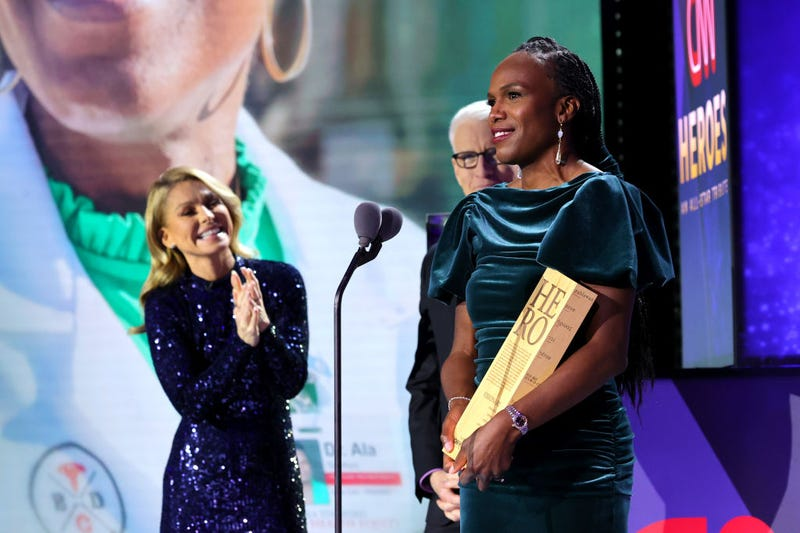
PHILADELPHIA (KYW Newsradio) — Dr. Ala Stanford, a Philadelphia doctor known for her lead role in COVID-19 testing and vaccination efforts in the city, celebrated the release of her book, “Take Care of Them Like My Own: Faith, Fortitude and a Surgeon’s Fight for Health Justice,” by kicking off a publicity tour at the Kimmel Center on Tuesday.
The book is part memoir, part manifesto, taking the reader on a journey through Stanford’s life, from her childhood, born to teenage parents in North Philadelphia, to the adversity she faced while studying to become a pediatric surgeon. She says the playing field was never even.
“I believe God gives all of us something, and sometimes having an uneven playing field makes you work that much harder. It's what gives you that grit and tenacity to persevere,” Stanford said.
The founder of the Black Doctors COVID-19 Consortium gained national attention during the pandemic, as she helped to educate Philadelphia residents about the coronavirus, setting up testing and vaccination clinics and building trust in the Black community among those who were skeptical.
“We went to where they trusted. And in many African American communities, it's the Black church or the Black mosque, right? I did not believe that people should trust me because I was Black and they were Black. I had to earn that trust, and once we started to gain it, I didn't take it for granted,” Stanford said.
“We removed the barriers, those determinants of health that preclude you from getting the access you need. We knew what they were, because it's a shared, lived experience, and that's where representation matters. And so we knocked it all down. You don't have insurance. We got you.”
Stanford says achieving health equity, in part, means education and acknowledging that the system put in place long ago benefited some but not others. This, she says, can change with a shift in thinking.
“If we take care of people like your own, like your mom, your brother, your sister, someone you love and care about, if you use that as the lens through which you deliver your care to your patient, that would change it all.”
